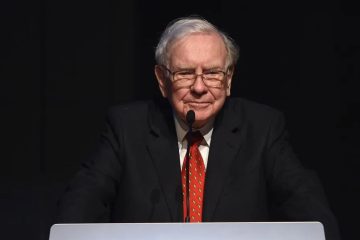Some Stocks Thrive, Others Dive in Ebola Scare
It isn’t an exaggeration to say that there is a lot of fear out there these days.
Here in North Texas, the fear is near and practically visible with some Ebola diagnoses, multiple individuals being monitored for signs of infection and one death – so far – in recent weeks. For us, Ebola is no longer a remote epidemic on the other side of the world.
Fear comes from other sources, of course, and those sources probably still seem remote to many in the United States, but the general sense is one of an unsettling insecurity that is reflected in what people are buying.
When people felt more threatened than they do today by terrorism, they stockpiled what they thought they would need if a “dirty bomb” went off and they had to hunker down for awhile.
Terrorism hasn’t gone away as a source of fear, but, at least for now, the fear of deadly disease has overtaken it, and, in the process, is taking its toll on some stocks while benefiting others.

Fairly or not, airline stocks have been taking a beating since the arrival here of the now-deceased initial patient in late September. Airlines brought the man here; other travel-related stocks may be similarly affected in the future if it appears that the virus is spreading by train or bus.
The price of a share of stock in American Airlines (AAL), for example, has dropped more than 13%.

Delta Air Lines (DAL) has gone down more than 15%.

Southwest Airlines (LUV) was on an upward trajectory until late September – but has fallen more than 12%.

On the other hand, Ebola is a boon for Lakeland Industries (LAKE), a Ronkonkoma, New York-based company that specializes in protective gear for people who have to handle hazardous material, including disposable protective clothing, chemical protective suits and fire fighting gear. Lakeland’s stock has more than tripled since the Ebola patient’s arrival. Among the clients served by Lakeland are the Department of Defense, the Department of Homeland Security and the Centers for Disease Control.

It’s a mystery why Lakeland is thriving in this situation. Lakeland’s chief competitors are Delaware-based DuPont (DD), Texas-based Kimberly-Clark (KMB) and New Jersey-basedHoneywell (HON) – all three have seen the prices of their shares drop since late September. Honeywell has dropped more than 10%. DuPont’s stock is down 7%. Kimberly-Clark hasn’t been as severely affected, but its price is down half a percentage point.



Similarly, Alpha Pro Tech (APT), which specializes in the kind of hazmat clothing worn by healthcare professionals, has seen a shift in its fortunes recently. The price of a share of Alpha Pro’s stock has more than quadrupled since late September.

But both Lakeland and Alpha Pro have limited resources, which may prevent them from being able to respond adequately to the kind of demand an epidemic can create. Those competitors – DuPont, Kimberly-Clark and Honeywell, as well as 3M (MMM), which has experienced a 2% decline in its stock price since late September – are better positioned financially for that kind of challenge.

About the author:
I’m a journalist by training. I grew up in Arkansas and earned my B.A. at the University of Arkansas. I earned my master’s degree at the University of North Texas. My background includes stints at newspapers in Arkansas and Texas and teaching news writing and news editing to students at the University of Oklahoma and Richland College here in Dallas. I’m the editorial manager at GuruFocus.








